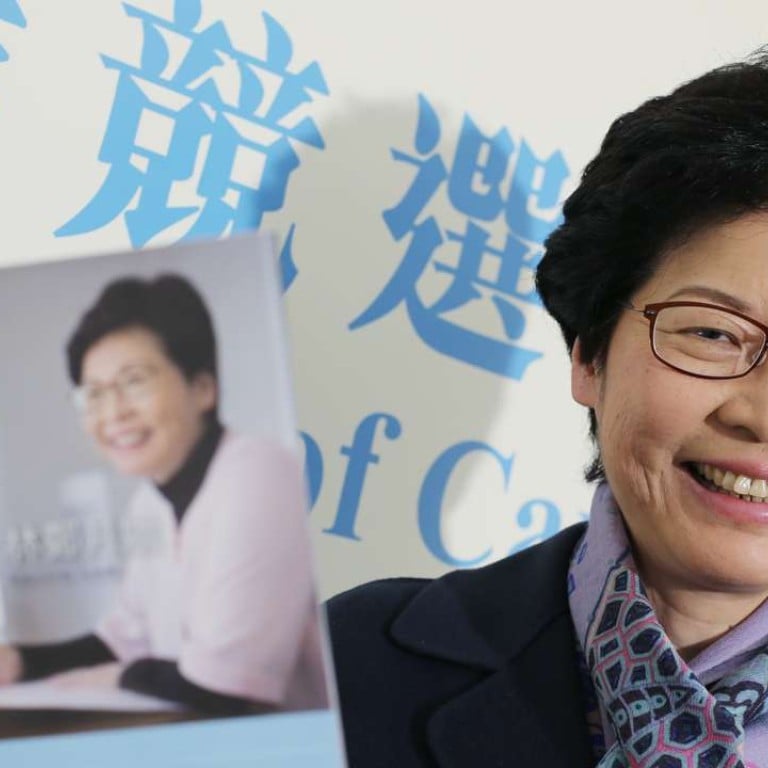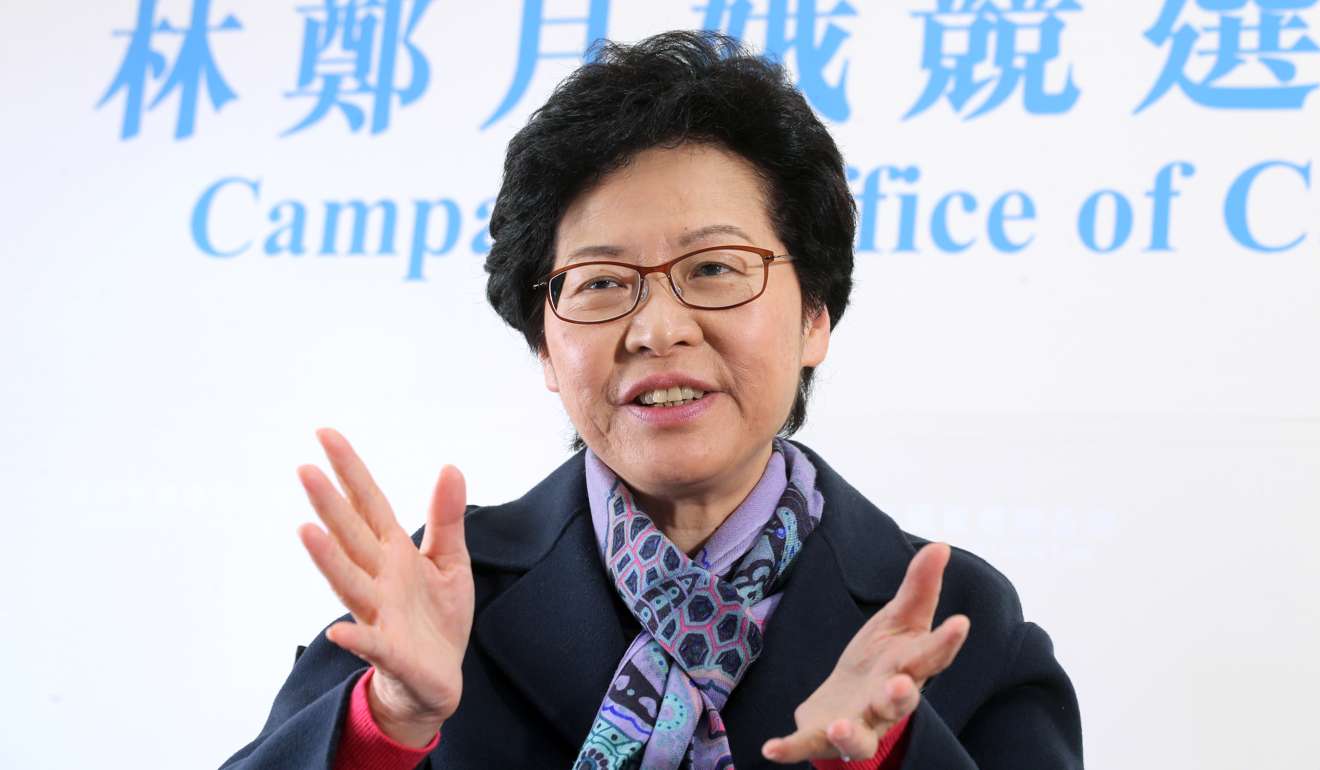
Help from Beijing and liaison office could be ‘counterproductive’ for campaign, chief executive hopeful Carrie Lam admits
Former chief secretary pledges to bridge Hong Kong-mainland divide if elected
The front runner in Hong Kong’s leadership race has vowed to tackle anti-mainland sentiment and distrust of big business at their source if she wins the chief executive election this month.
Even as Carrie Lam Cheng Yuet-ngor emphasised the need to bridge the divide between the city and the mainland, she admitted that help from Beijing and its liaison office for her could be “counterproductive” for her campaign.
She said she would not publicly ask the liaison office to stop lobbying for her.
“[If you ask them publicly,] you are falling into the trap that you agree that they’re interfering. I don’t know how they are interfering, what did they say, how did they ask for votes. I just don’t know.”
But when asked if she would privately do so, she replied: “This is something not to be disclosed.”
“I’m sure you have seen,” she said. “I have done nothing that deserves this sort of attack, to be very honest with you.” She was referring to criticism that she had Beijing lobbying on her behalf.
In a wide-ranging interview with the Post on Wednesday, Lam said that if she took up the hot seat and came under pressure from Beijing’s liaison office, she would make it clear it was her prerogative to govern Hong Kong under the autonomy promised by the central government.
“The government cannot just sit back and let the people have these sentiments. There must be some reasons for these sentiments to grow, so we have to tackle the sources,” she said.
She attributed anti-mainland feelings to the influx of tourists from across the border. She also agreed that Hong Kong’s stalled political reform process could be to blame as well.
But Lam, who made no commitment in her manifesto to restart the process, said the situation in the city had not changed since the government’s one person, one-vote proposal for the 2017 chief executive election was rejected by the Legislative Council in June 2015. It was deemed as “fake universal suffrage” by the pan-democrats who rejected Beijing’s restrictive framework.
Asked if the conditions for relaunching the reform would emerge in the five-year term of the incoming government, she said: “I don’t know. I’ll work very hard.”
On recent calls for Hong Kong independence, Lam, who majored in sociology at the University of Hong Kong in the late 1970s, said: “You need a sociologist or a political scientist to analyse that. I am not a very good student.”
She attributed the growing anti-business mood to rising property prices, and said she had been encouraging companies to support social enterprises.
“We should move on to getting corporations involved in doing some of these socially responsible acts,” she said.

Lam lamented she was in a “no-win situation” when asked about being surrounded by tycoons at campaign events and the negative perception among a public that suspects collusion.
“When I first emerged people said the businesses hate me [because] ‘you are too welfarism’. And now people say ‘you are too pro-business, labour people dislike you now’,” she said. She insisted she did not “owe anything to anybody”.
She said she was not worried about the possibility of being mocked like outgoing Chief Executive Leung Chun-ying if she failed to score a decisive victory this month.



